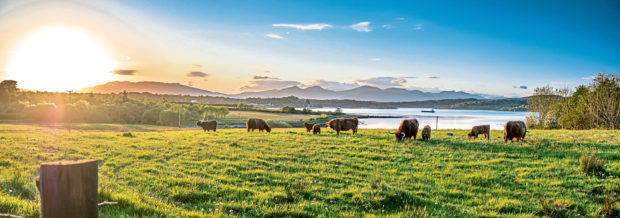Farm leaders have hit out at new land tax proposals, which include the potential removal of Agricultural Property Relief (APR).
The proposal for a reduction in, or removal of, APR is included in a series of potential options for an overhaul of the land and property tax regime in Scotland.
The options, outlined in a report commissioned by the Scottish Land Commission, also include increased taxes on unproductive land, such as derelict sites, reforming council tax bands, and adding agricultural land to the valuation roll for business rates.
“Land is our most valuable asset and we need to be willing to rethink how our tax system operates to make sure we are making the most of it for everyone,” said Lorne MacLeod, a land commissioner and chairman of the commission’s newly formed tax expert advisory group.
“Taxes on land and property have the potential to stimulate behaviour change to incentivise a more productive use of land as well as disincentivising behaviour relating to land use and ownership that is not delivering wider public benefits.”
He said land taxes would also provide an important source of income for the public purse and help support the economic recovery from the pandemic.
Landowners’ body Scottish Land and Estates (SLE) warned the removal of APR would be a “hammer blow to the rural economy” and potentially force the break-up of family farms, while farmers’ union NFU Scotland (NFUS) said any form of land tax was unacceptable.
SLE chief executive, Sarah-Jane Laing, said: “These taxation proposals would have an effect across the entire Scottish countryside, not simply on estates or large landowners.
“It could have an impact on delivering local communities’ aspirations and it would discourage those providing investment, from housing developers, to forestry businesses and farmers.”
NFU Scotland president, Andrew McCornick, said: “It is worrying for industry that the focus of the report seems to be on land ownership rather than how land is being used.
“Those who are actively working the land to produce food should not have anything to fear from political agendas relating to scale or concentration of land ownership.”
He said the current system of tax reliefs, including APR, ensure family farms can be passed on to the next generation within the family and they must be allowed to continue.
Mr McCornick said although NFUS was opposed to any form of land tax, it recognised the role taxation could play in creating a healthy and vibrant tenant farming sector.
However, he added: “The politics must fit, and ultimately landowners need certainty and an assurance that their course of action is low risk.”
